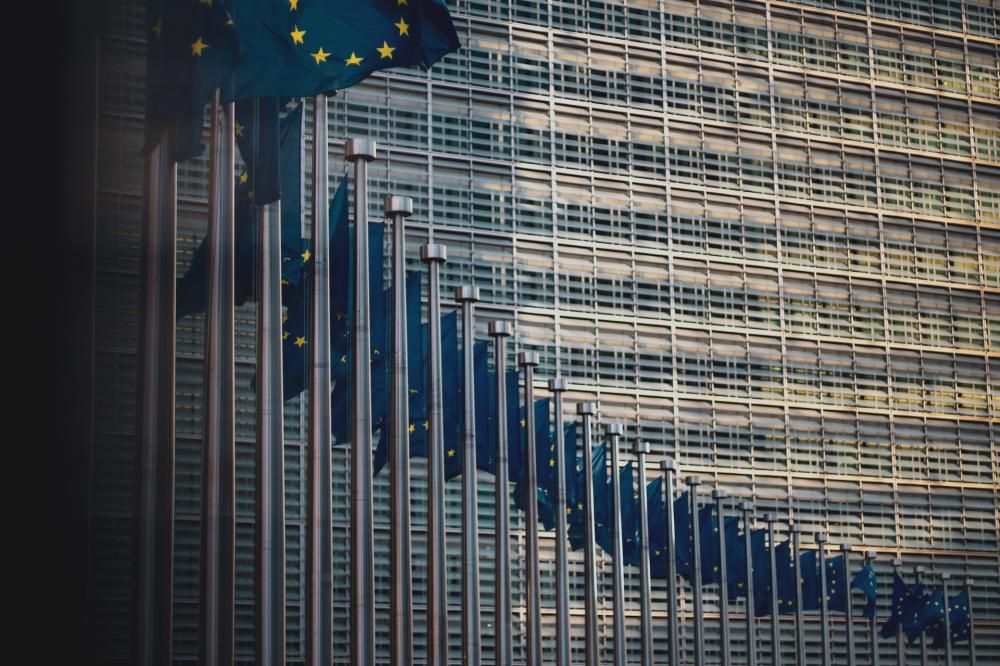Uncover Brexit's impact on UK and EU FX trading. This analysis offers key insights for traders in a post-Brexit market.
Let's delve deeply into how Brexit has altered FX trading environments both in Britain and Europe. We will explore all its geopolitical effects that have drastically altered financial markets. Ready for some valuable insights? Keep reading.
Brexit Timeline: Refresher Course
Brexit (short for "British Exit") refers to Britain's decision to leave the European Union (EU). This process, finalised on January 31, 2020, and lasting through December 2020, severed many economic ties between Britain and EU member nations. Its political and societal effects have been widely debated, and its financial market impact remains of particular significance amongst expert traders.
Immediate Results of Trading Forex in an Unstable Environment
Following the Brexit vote and subsequent milestones, trading forex became an intensive test of agility and precision. Currency pairs such as EUR/GBP and GBP/USD experienced unprecedented fluctuation; those quick to adjust saw significant rewards, while those failing to adapt suffered significant financial setbacks.
Regulation Changes: Shifting Away From Passporting Towards Equivalency
One of the major changes post-Brexit was the end of “passporting” rights for UK-based financial firms, which allowed companies to offer services throughout Europe without needing separate licenses. Since Brexit, however, the focus has shifted toward "equivalence", an approach allowing access to EU markets provided the regulatory environment is similar between both nations. This shift has caused trading volumes from London to move towards European cities such as Frankfurt and Amsterdam.
Liquidity Concerns in Europe: European Perspective
EU nations have expressed grave worries regarding currency trading following Brexit due to London being long the primary centre for FX trading and its partial withdrawal from EU markets; its absence has raised doubts regarding Euro availability and cost, though these worries have been somewhat alleviated thanks to other trading centres within EU states.
Impact on Cross-Border Transactions: Navigating a New Normal
Brexit has also enormously affected cross-border transactions between British Pound and Euro currencies, creating more transaction costs and processing times than before due to no unified framework governing such trades. Therefore, traders now need to exercise extreme caution when conducting international deals, with greater cost implications than before.
Tax Implications: The Forgotten Aspect
Though much attention has been focused on market volatility and regulatory changes caused by Brexit, its tax ramifications on FX trading often go overlooked. Both UK and EU jurisdictions have different tax regimes, which are likely to further diverge over time; cross-border traders must be cognizant of both sets of obligations when operating FX positions. Failure to do so could incur steep fines, adding another element of risk to FX trading.
Central Banks: Monetary Policies in an Increasingly Divided Europe
Post-Brexit, central banks’ roles have become more integral. Any differences in monetary policies between them could cause dramatic FX rate movements; traders must keep tabs on policy announcements or changes that could present trading opportunities or pose any potential threats.
Geopolitical Considerations: Beyond Economic Arguments
Shifting relationships among global powers like China and America may influence currency values directly; trade deals or diplomatic tensions could immediately affect FX markets; therefore, traders should expand their analysis by including geopolitical factors when considering trading opportunities.
Cryptocurrencies and Digital Assets Have Emerged As Alternative Markets in Recent Years
Although not directly attributable to it, rising interest in digital assets may reflect an attempt by traders to seek markets which are less susceptible to geopolitical events' influence.
However, cryptocurrency comes with risks and should not be seen as a complete replacement for traditional FX trading.
Psychological Considerations in Turbulent Market Conditions: Mastering Emotions Under Extreme Market Pressure
Although trading may involve numbers and data, its human component cannot be ignored. Trading can have an emotional cost; stress and anxiety may lead to hasty decisions which endanger trading success. Therefore, emotional intelligence and psychological resilience are necessary traits in modern trading; mindfulness techniques or stress management strategies may assist traders to remain composed under even the most trying market conditions.
Ethics of Trading: Operating Responsibly Within an Increasingly Fragmented Marketplace
Post-Brexit has given rise to significant questions on the ethical dimensions of FX trading. Due to increased market fragmentation and potential regulatory arbitrage opportunities, traders and financial institutions must adhere to high ethical standards to preserve market integrity; additionally, regulatory bodies need to increase oversight to stop any unlawful practices from developing.
Brexit in Context With Other Market-Moving Events:
Brexit is part of a greater pattern of market-moving events; for example, trade wars, pandemics and geopolitical tensions play their parts. By understanding its interrelations with these other elements, traders may gain more of an accurate assessment of its effect on FX markets, such as how it affects trading relationships between UK/EU/USA vs. U.S.
Financial Journalism Plays an Essential Role in Keeping Traders and Investors Informed
Staying current in today's fast-paced trading environment is crucial. Financial journalism plays a pivotal role in disseminating timely, accurate information — breaking trade deal news or in-depth central bank analyses; traders depend on quality journalism for timely updates to remain ahead of their rivals. However, traders must distinguish between factual reporting and opinion pieces to avoid spreading misinformation or rumours that could potentially change trading outcomes.

(Photo by Christian Lue on Unsplash)
As we navigate the complexities of post-Brexit FX trading, it has become evident that this dynamic and ever-evolving landscape presents new opportunities and challenges alike. For traders willing to adapt, innovate and evolve – from using technology and analytics tools to understanding geopolitical and ethical considerations of trading activities; there is a lot of new opportunity. However, there is also just as much for traders to keep an eye on in this process. Post-Brexit FX trading will not only bring new challenges and opportunities; it will be like starting over. With every book comes its share of twists and turns; prepare to face all that lies ahead by being prepared. With no one stopping the market from moving ahead — now more than ever is the time to seize those opportunities that await us all.










